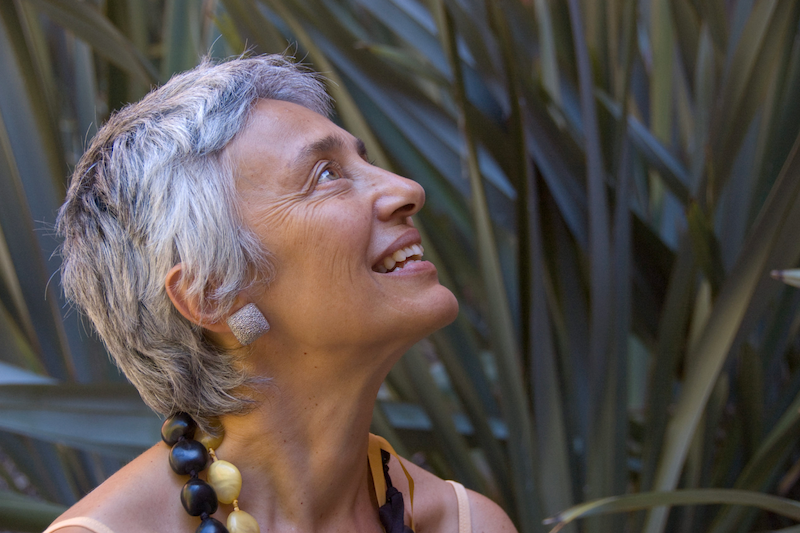
Amelia Barili PhD is a UC Berkeley professor emerita and a Polyvagal Institute faculty member. She received the Chancellor’s Award for Public Service, and teaches a systematic embodied approach for personal transformation. She is teaching “Ancient Wisdom and Neuroscience: Befriending Your Nervous System” with us this winter.
Many of the courses you’ve taught at OLLI over the years have integrated some aspects of ancient traditions and neuroscience. Has this kind of cross-pollination always been a passion of yours?
Yes, it has. As a young woman, I traveled, lived and worked all over the world, studying healing traditions in Asia, Africa, Europe, and North and South America. That ancient wisdom teaches us that we are a continuum of body, mind and spirit, and that we are all interconnected and intra-connected. I’ve always been interested in the subtle connections between body, mind and spirit, and that passion has taken me on many interwoven paths. Long before earning a PhD from UC Berkeley, I studied at, and earned a degree from the Kaivalyadhama Yoga Institute in India, the oldest scientific yoga research institute in the world. I’ve always sought ways to integrate these two parts of me in my life as a college professor and as someone who cares deeply about the interconnectedness of our whole organism and the process of how we learn.
In 2007 I was able to bridge these two areas thanks to a Fellowship from the Berkeley Language Center to do research on "Learning to Learn: The Role of Neurobiology and Cognitive Science in Autonomous Learning.” That complemented research I’d been doing on the role volunteering plays in how youth and older adults learn, which I was already integrating into my courses. For my research on these new ways of learning over the lifespan and for the volunteering my students and I have done for years, I received the Chancellor's Award for Public Service in 2008. Shortly afterwards I began teaching interdisciplinary and multicultural courses at OLLI. I love our OLLI students and their passion for learning.
You definitely have a big fan club here. Tell us about your new course.
I’m very excited about it. It has a strong component of positive neuroplasticity in it like some of my earlier courses, but without the volunteering component.
It is an experiential course that focuses on self-care through befriending your nervous system. It’s based on teachings and practices from ancient wisdom traditions of India and China and on findings from modern-day neuroscience. Some of these techniques have been studied in journals like The Lancet, Science Direct, and in articles by the National Institutes of Health, and so on.
I’ve studied these ancient traditions for much of my life, and have had the good fortune of counting among my friends distinguished scientists and neuroscientists with whom I have been dialoguing for many years, such as Fritjof Capra, Dan Siegel, Rick Hanson, Sue Carter and others. More recently, I’ve been collaborating with Dr. Stephen Porges, distinguished professor of psychiatry at the University of North Carolina and the creator of the Polyvagal Theory and many studies on the vagus nerve. Many of the perspectives on self-care and neuroscience in my OLLI course come from what I've developed while teaching a course with him at the Polyvagal Institute. It has given these ancient teachings the concrete framework of neuroscience.
When you say the course is “experiential” I assume that means that members will learn and practice techniques in class?
Yes. That is the main focus of the course. In each class we will learn and practice together easy and effective techniques to befriend our nervous system and to shift us from states of fear and shutting down into states of safety and connection. A skill which is always useful and most especially in our challenging times. You might be thinking “How are we going to achieve that?”
I was.
Well, our autonomic nervous system and our whole organism responds amazingly well to our breath, our touch, our posture and specific gentle movements, and to our sense of purpose as human beings. Those are the four powers that we will be learning to develop experientially over the course of six weeks.
In every class, I'll share a distillation of what I've been studying, learning and teaching for more than 40 years. We’ll practice together techniques from Qigong, which was developed some 3,500 years ago, and from Classical Yoga that is thousands of years old, as well. Besides experiencing the joy of learning centering, grounding and healing techniques in the safe and welcoming environment of our class, my hope is that our OLLI students will take these new skills and practice them at home. I'll guide them on how they can easily incorporate them, a little bit at a time, into their day-to-day lives to strengthen their nervous system and develop resilience and good health.
It must be heartening to see all these recent studies on Classical Yoga and Qigong.
The interest has grown exponentially within healthcare and many hospitals are using them in their preventive care units. UCSF, for example, has an Osher Center for Integrative Health where they integrate yoga to teach patients to relax as part of the process of preventing further complications and healing. It is beautiful to see how we are slowly expanding our interest in mainly just the brain to an interest in our autonomic nervous system and its influence in our whole organism. The integrative approach we will practice in class gives us new tools for cultivating positive neuroplasticity and resilience, rest and repair in our daily life. To learn more about it, students can visit my website where there are also some of my dialogues with scientists.